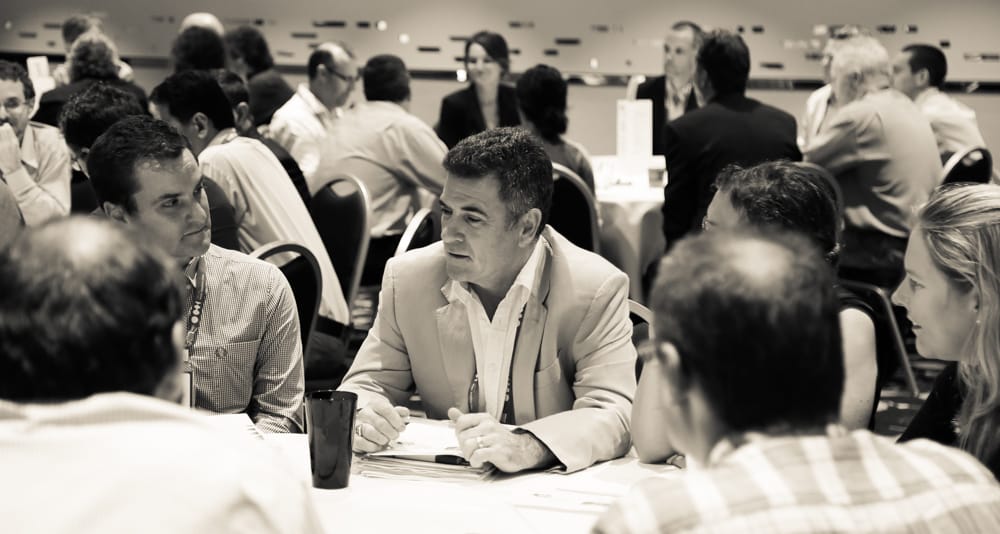Better governance for complex decision-making
It has become a truism to say there’s more to urban water development than pipes in the ground. As technical and engineering challenges are addressed, focus has shifted to social and institutional barriers, including seemingly labyrinthine layers of governance that can impede potential innovation. “Having good technical solutions is only the beginning. The larger challenges are in fact to navigate the social and institutional systems required for translating good technical ideas into practical realities,” explained University of Queensland Professor Brian Head, leader of the Sub-project on Better governance for complex decision-making (Sub-project A3.1) at the CRC for Water Sensitive Cities (CRCWSC).

Sub-project A3.1 is part of Project A3, which focuses on governance and regulatory reform in the urban water sector. “By governance we’re really talking about what kind of decision-making arrangements are in place and how they may need to be improved to achieve sensible innovations,” said Professor Head. That involves not only assessing the quality of the science underpinning decisions, but also understanding the current arrangements, policy settings, regulatory frameworks, and even the informal conventions and norms that affect water projects.
Findings and insights
In December 2013, Sub-project A3.1 delivered a milestone report titled “Specifying the urban water governance challenge” that reviewed major shifts in Australian water policy over the last twenty years and identified key governance challenges for the future. The next stage is to look at, and learn from, governance arrangements overseas. Finally, the project will investigate recent or current case studies of urban water innovation in Australia and discern the underlying factors for success or failure, building up to recommendations for institutional reform that will be released in 2015. Professor Head said the CRCWSC’s Participants can expect to receive some insights into how policy and institutional frameworks might be improved – to promote cost-effective and risk-managed innovations.
Building partnerships
One key insight so far has been the importance of collaboration. “If you look realistically at the decision-making arrangements around these projects, they are complex, there are many key stakeholders or actors involved, and therefore we need to take seriously those relationships and build partnerships that will work,” said Professor Head.

University of Queensland research fellow Dr Yvette Bettini has been working with Professor Head on Sub-project A3.1, tapping into discoveries from her recently completed PhD on adaptive urban water governance. She told us that institutions are not just organisations or laws and regulations, but “shared understandings between people”; therefore the way to change them is through a collaborative process, so that all people involved are aware of the reason for reform.
Rules-in-use
How does a project get approved in one council but not in the council next door? The answer has to do with the rules governing such decisions, which are not always transparent or formalised in legislation and regulation. Dr Bettini’s research seeks to uncover not just the influence of known laws and regulations on decision-making, but also the tacit understandings in the urban water sector. Collectively, these formal and informal conventions and understandings – some open, some hidden – are known as “rules-in-use”.
Dr Bettini explains with an example. You walk into a meeting and automatically – almost unconsciously – you switch off your mobile phone. The repercussions of not turning off your phone are small, but most people still conform because it has become a social convention. This is a “rule-in-use” – an informal shared understanding.
In exploring how these rules-in-use are interpreted, used, and changed in professional practice, Dr Bettini’s PhD research found three classes of dynamic influences on institutions: maintaining dynamics (perpetuating existing rules), creating dynamics (opening rules to reinterpretation), and disrupting dynamics (challenging the status quo).
Comparing Adelaide and Perth
These two theories – rules-in-use and institutional dynamics – were then used to compare how Perth and Adelaide’s water sectors responded to the decade of drying climate in the 2000s. Data were gathered through workshops with policy makers and with practitioners on the ground, and the results highlighted divergent policy responses. Perth had noticeably more maintaining activity in the urban water sector. Not only were existing rules and structures reinforced, on the whole the professional and organisational culture acted as a disincentive to creating new rules. One workshop participant summed up this practice: “Everyone knows what their comfort zone is, what they know and love and have been doing for the last 30 or 40 years.”

In contrast, Adelaide had more disruptive and creating activities, and therefore more “outside the box” thinking. The political and cultural environment was more supportive of reinterpreting rules or challenging the status quo. Citizens engaged with water issues, and media coverage of the Murray River debates prompted extensive public discourse on water scarcity in the city and the solutions that could solve it. This, coupled with mounting scientific evidence, created a strong political imperative to come up with new approaches. As one participant said: “People were rightly asking questions about, well, business as usual.”
Unlocking hidden barriers
What does this theoretical discussion of institutional change have to do with the more practical aspects of urban water management? “To date a lot of the discussion has been around how we’ve got the technical solutions but the institutions are the barriers. We need to change them, so how do we do that?” said Dr Bettini. “This research is starting to shed a bit of light on how that change happens.”
Another benefit is that the research reveals hidden barriers people might not have realised they were facing. A particular world view, the way a problem is framed, an assumption of “causal logic”: these factors can influence decisions, yet are not always made explicit or given their true weight. Dr Bettini’s study helps to bring some of these under-acknowledged influences into the open.
The ultimate goal is overwhelmingly practical – as gritty and grounded as laying a pipe to a new suburb. “Once you’ve uncovered this hidden world of what’s going on, you can start to use that knowledge to actually seek the change that you want,” said Dr Bettini.
Greg Foyster for the Mind Your Way team